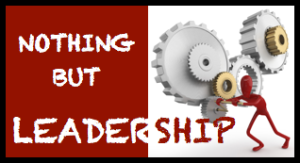What’s missing? Why do we keep wrestling with the same issues that we’ve examined and discussed throughout our careers? T hat’s what makes it both fascinating … and painful … to be reminded about our timeless journey and our ongoing struggle to find the right balance to fulfill the lives we envision for ourselves.

“To be or not to be that is the question.”
I’ve always been intrigued by Shakespeare’s line … not only because of its famous lineage, but because so few know the words that follow and give the phrase its power:
“Whether ’tis nobler in the mind to suffer the slings and arrows of outrageous fortune, or take arms against a sea of troubles, and by opposing, end them.”
I recently sent a note to a few of my former partners, accusing Yo-Yo Ma of hijacking for his new album one of our frequently-invoked phrases: “Goat Rodeo Sessions.”
In those days, we applied it to all manner of things that appeared as a super-cluster of mayhem and chaos. What I’ve learned is that poor project planning and organization is the hallmark of many of the failed projects on which we have all served.
Are you leading a Goat Rodeo or a Balanchine ballet?
Making those tough decisions can turn a goat rodeo into something closer to a Balanchine ballet.
Alas, it’s one of our greatest failings … we tend to dawdle over difficult decisions because we don’t like the choices … don’t like to terminate under-performers who’ve been with the company a long time … or to close a struggling plant that Dad built … or to sell assets, at lousy market prices, that we no longer need.
Don’t dwell on yesterday’s news
The past offers no forgiveness for current transgressions.
We have to part ways with conventional wisdom and separate what’s good for our company today from what worked yesterday.
Feelings may be hurt, past accomplishments diminished, former heroes kicked to the sidelines … but we have to make those difficult decisions to remain competitive.
We know this … that the only thing that doesn’t change is change itself, and as we lead our companies forward, we must focus on today … and what will work now.
Deal with issues as they “show up” rather than when they “blow up”
We’ll rarely be disappointed when we deal with issues as they “show up” rather than when they “blow up.”
What’s startling is we often know exactly what we need to do, but fail to “trust our gut” even though it is a remarkably reliable barometer of the right thing to do.
We simply don’t like the choices and get wrapped around the axle, burning countless unproductive hours of executive time nursing an issue that we already know how to resolve. It’s time to stop the mollycoddling and make the right decisions now.
That’s why Hamlet’s second choice is always the right one.
[pullquote]“As a final incentive before giving up a difficult task, try to imagine it successfully accomplished by someone you violently hate.” ~Unknown[/pullquote]
I’ve often quoted Levitt and Dubner, authors of Freakonomics and their memorable tagline, Incentives are the Cornerstone of Life.
What we are learning … what the Freakonomics authors uncovered … is that well-intended incentives often create disincentives toward the very goals they were created to stimulate.
Levitt and Dubner’s stories about Chicago schoolteachers, Sumo wrestlers and drug dealers paint a vivid picture of how misaligned our incentive programs can become.
Take a fresh look at your company’s most important incentive plan
So, I invite you to pick the most important incentive in your organization and examine it with fresh eyes.
Pick the one that everyone agrees is the foundation of much of what you do, and evaluate it in a careful and objective manner, whether it’s guiding the participants as originally intended.
I’m pretty sure most of you will find that the incentive plan you evaluate has become a staple of your compensation structure and company culture, taken for granted by most everyone, and contributing very little to stimulate the superior performance for which it was originally created.
Let me know what you find, what’s working, what isn’t and what you might do to modify it so that it helps you achieve the goals you’ve set. For some help, take a look at Does Your Incentive Plan Really Drive Superior Results?
Stay out of the traffic!
Amidst the hailstorm of relentless inputs coming your way, be sure to earmark some of these important principles to give them the attention they deserve.
Don’t get dragged down by the undercurrent of constant interruptions.
Stay focused.
You’ll often find if you get the big issues right, you’ll be leading a convoy with most of the other nagging issues falling in line.
Question: What’s the most important lesson you’ve had to learn the hard way? You can easily add your comment below, or by visiting our Facebook Page or @Exkalibur on Twitter. I visit them every day and look forward to discussing these ideas and concepts with you.



